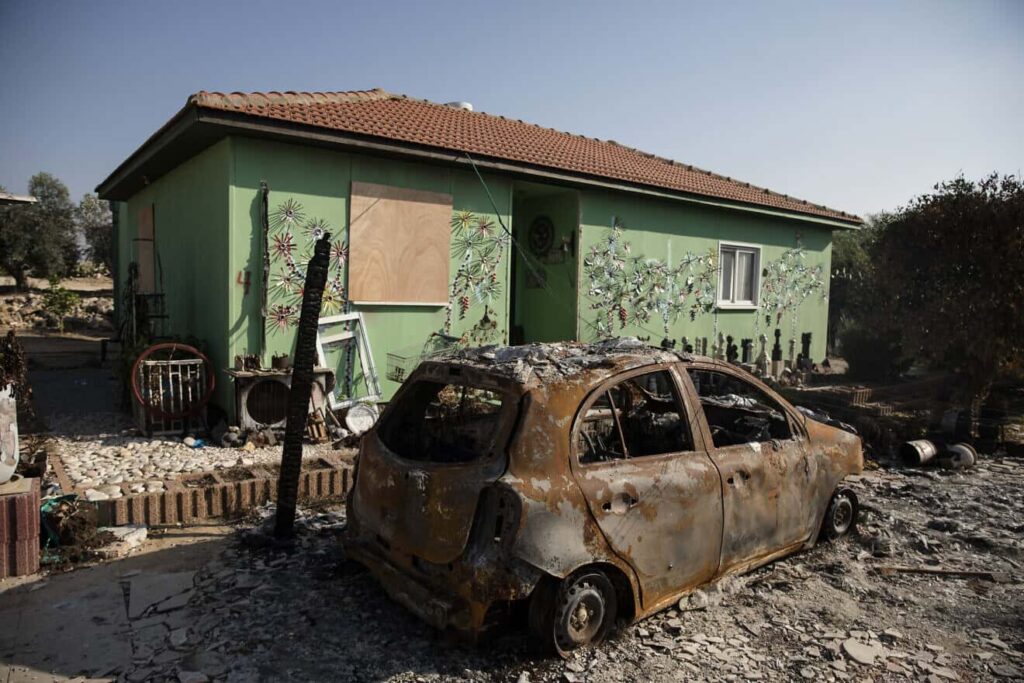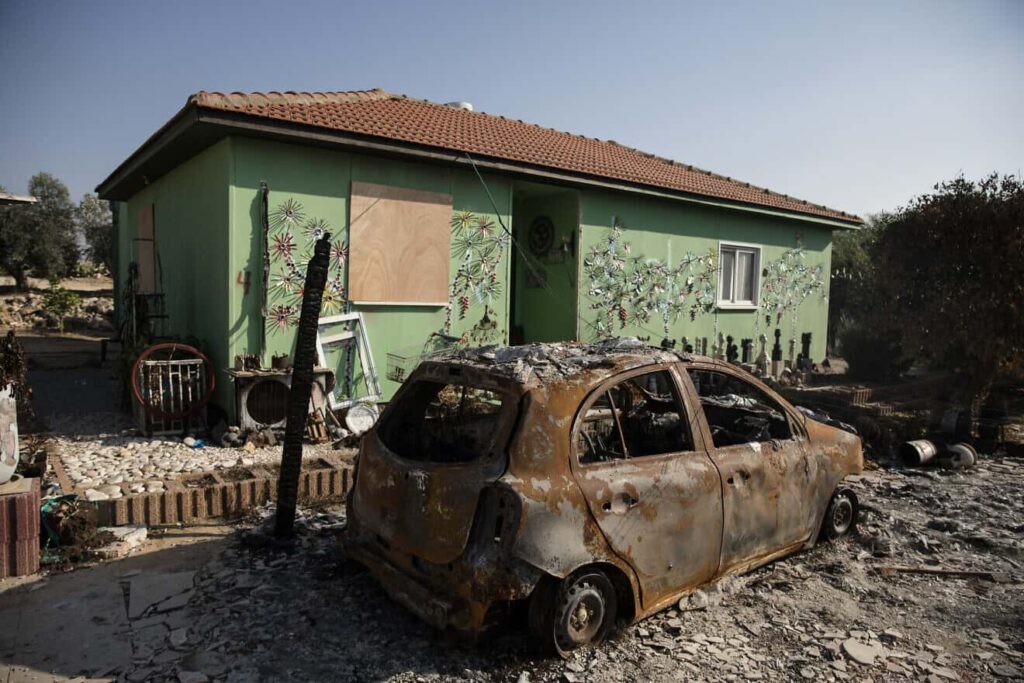
Israel and its terrorist foes, clarifying legal differences
The alleged Hamas goal of Palestinian “self-determination” is founded on an intended crime, that is, the total “removal” of the Jewish state by attrition and annihilation.
From the standpoint of international law, there is a basic legal distinction between jihadist terror violence and Israel’s no-choice response to such violence. Whether Israel is operating against Shi’ite Hezbollah in Lebanon or Sunni Hamas in Gaza, it always seeks legitimate military objectives with minimum civilian harm. Noncombatant harms can never be prevented altogether, especially when the perfidious enemy is hiding behind human shields, but Jerusalem is not motivated by mens rea, “criminal intent.”
In its law-enforcing wars against Iran-backed jihadist terror, Israel is acting on behalf of all states in world politics. While this has been difficult to acknowledge by those who see only the tangible effects of Israeli counterterrorism, it is supportable by long-established legal obligations of mutual aid. By this principle, one known correctly as jus cogens or “compelling law,” each state is required to assist other states imperiled by terror violence. Most important in explaining this requirement were Swiss jurist Emmerich de Vattel in The Law of Nations, 1758, and English jurist Sir William Blackstone in Commentaries on the Laws of England, 1765-1769.
There are various noteworthy details concerning Israel and Hamas. The Palestinian “Islamic resistance movement” crimes of Oct. 7—murder, rape and hostage-taking—represent egregious, Nuremberg-level violations of humanitarian international law. Under “peremptory” or jus cogens rules, all states, not just Israel, have an immutable obligation to punish criminals.
Principle 1 of the Nuremberg Principles stipulates this obligation unambiguously: “No crime without a punishment.” There would have been no Gaza war and no Palestinian casualties if Hamas had not launched its Oct. 7 criminal assault against Israelis, including babies, raped both men and women and burned some people alive. Prima facie, Hamas’s barbarisms had nothing to do with any law-based expectations of sovereignty, self-determination or statehood. They were conspicuously primal.
There is more. Among other contrived charges, Israel is often criticized for “disproportionality.” But legal meanings are generally not the same as “common-sense” meanings.
Under the binding law of war and contrary to common-sense meanings, proportionality has nothing to do with inflicting symmetrical or equivalent harm. Proportionality derives from a more basic legal principle, namely that belligerent rights always have specific limitations. The false Hamas declaration that it is entitled to fight “by any means necessary” contravenes Hague Convention No. IV (1907), Annex to the Convention, Section II (Hostilities), Art. 22: “The right of belligerents to adopt means of injuring the enemy is not unlimited.”
Unlike Israel, which expressly laments the collateral damage of its self-defense war in Gaza, Hamas rocket fire and terror attacks are the product of relentlessly “criminal intent” or mens rea. By design, Hamas aims to maim and kill noncombatants. In Jerusalem, this aim ought now to be imagined in tandem with Hamas’s hopes for weapons of mass destruction.
If a common-sense definition of proportionality was simultaneously law-based, there could never be a legitimate argument supporting America’s “disproportionate” attacks on European and Japanese cities during World War II. By that standard, Dresden, Cologne, Hiroshima and Nagasaki would represent the documented nadir of inhumane and lawless belligerency.

(Source: JNS)
Deception can be lawful in armed conflict, but The Hague regulations disallow the placement of military assets or personnel in civilian areas. Related prohibitions of “perfidy” can be found in Protocol I of 1977 addition to the 1949 Geneva Conventions. These rules are binding based on customary international law, a principal jurisprudential source identified in Article 38 of the Statute of the International Court of Justice.
All anti-Israel combatants, including Palestinian insurgents alleging fighting for “self-determination,” are bound by the law of war. This requirement is found in Article 3, common to the four Geneva Conventions of 1949. It cannot be suspended or abrogated. Israel, too, is bound by the law of war, but its Gaza war actions that kill and injure Palestinian civilians are without criminal intent.
The alleged Hamas goal of Palestinian “self-determination” is founded on an intended crime, that is, the total “removal” of the Jewish state by attrition and annihilation. This genocidal orientation has its origins in the PLO’s “Phased Plan” of June 9, 1974. In its 12th session, the PLO’s highest deliberative body, the Palestinian National Council, reiterated the terror organization’s aim “to achieve their rights to return and to self-determination on the whole of their homeland.”
In its plan, a proposed sequence of Palestinian violence was identified: First, “to establish a combatant national authority over every part of Palestinian territory that is liberated” (Art. 2); second, “to use that territory to continue the fight against Israel” (Art. 4); and third, “to start a Pan-Arab War to complete the liberation of the all-Palestinian territory” (Art. 8). Ironically, this was and remains the annihilationist plan of a more mainstream Palestinian terror group than Hamas.
At some still-indecipherable point, Hamas, with tangible Iranian support, could launch assorted mega-terror attacks on Israel. Such presumptively “perfidious” aggressions—unprecedented and in cooperation with allied non-Palestinian jihadists (e.g., Shi’ite Hezbollah)—could include chemical, biological or radiological (radiation-dispersal) weapons. Foreseeable perils could also include a non-nuclear terrorist attack on the Israeli reactor at Dimona. There is a documented history of enemy assaults against this Israeli plutonium-production facility, both by state actor Iraq in 1991 and Hamas in 2014.
International law is not a suicide pact. Even amid long-enduring world-system anarchy, it offers a binding body of rules and procedures that permits any beleaguered state to express an “inherent right of self-defense.” But when Hamas celebrates the explosive “martyrdom” of manipulated Palestinian civilians and when Palestinian leaders seek “redemption” (presumed power over death) through the mass murder of “Jews,” the wrong-doers have no supportable claims to immunity from punishment.
Under international law, terrorists are considered hostes humani generis or “common enemies of humankind.” Among other things, this category of criminals invites punishment wherever the wrongdoers can be found. Concerning their required arrest and prosecution, pertinent jurisdiction is “universal.” Correlatively relevant is that the universality-declaring Nuremberg Tribunal reaffirmed the ancient legal principle of “no crime without a punishment.”
There is an extra-legal but still important observation concerning Hamas’s allegations of Israeli “disproportionality.” To wit, many Palestinian commanders who control terror mayhem against Israel unheroically seek shelter in safe towns and cities outside of Gaza. Theatrical rhetoric notwithstanding, these self-declared commanders are never eager to become “martyrs” themselves. Why? This is a question that every impacted Palestinian should finally be asking.
What next? In law, all law, truth is exculpatory. Regarding the current Gaza war, the truth is unambiguous. Israel is once again waging a necessary war against a determinedly exterminatory foe—this time, a jihadist terrorist organization that seeks annihilation for Israel, eternality for its “martyrs” and safety for its criminal leaders.
Hamas and its wider Palestinian populations believe that they are fighting a “just war” and are thereby entitled to employ “any means necessary.” Under international law, however, even if a war is determinably “just,” it must be fought only through “just means.” In this binding law, the ends can never justify the means. Jurisprudentially, “rights can never stem from wrongs” (ex iniuria ius non oritur). Under no circumstances can there be any law-based justifications for inflicting terror violence. To suggest anything else would be a defilement.
** This article was originally published on JNS.org **
The post Israel and its terrorist foes, clarifying legal differences appeared first on Israel365 News.
Israel in the News